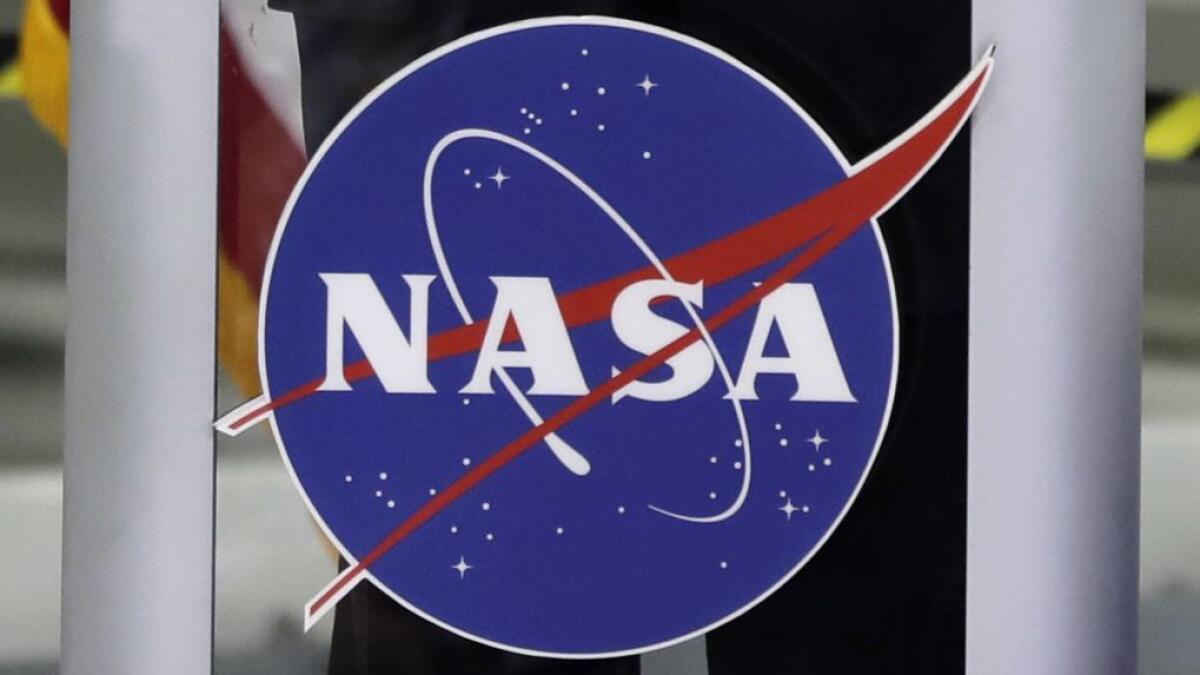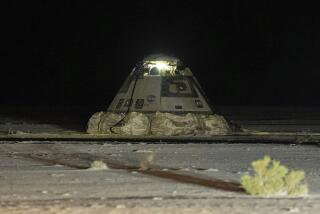NASA orders safety review of SpaceX and Boeing, reportedly due to Elon Musk marijuana video

SpaceX Chief Executive Elon Musk’s infamous pot toke on a comedian’s webcast reportedly was no joke to NASA, which will launch a safety review next year of SpaceX and Boeing Co.’s efforts to build capsules to take NASA astronauts to the International Space Station.
Citing officials familiar with the matter, the Washington Post reported Tuesday that the review was prompted by Musk being seen in September smoking marijuana and sipping whiskey on the webcast, livestreamed on YouTube.
NASA described the safety review as a “cultural assessment study” that would be conducted in coordination with SpaceX and Boeing to “ensure the companies are meeting NASA’s requirements for workplace safety, including the adherence to a drug-free environment.”
“We fully expect our commercial partners to meet all workplace safety requirements in the execution of our missions and the services they provide the American people,” NASA said in a statement. “As always, NASA will ensure they do so.”
A NASA spokeswoman declined to comment about the reason for the probe beyond that statement. William Gerstenmaier, NASA’s associate administrator for human exploration, told the Post that the agency’s safety review would be “pretty invasive,” and involve hundreds of interviews with employees at the two companies and at multiple work locations.
In 2014, SpaceX and Boeing were awarded NASA contracts to build separate capsules to launch astronauts to the space station. The capsules would replace trips on Russian rockets, which the U.S. has purchased since the space shuttle’s retirement in 2011. SpaceX’s contract is worth up to $2.6 billion, while Boeing’s is worth up to $4.2 billion.
Hawthorne-based SpaceX said in a statement that it took seriously its responsibility to carry NASA astronauts to the space station and that its engineers had worked side by side with NASA for years to develop its Crew Dragon astronaut capsule.
“There is nothing more important to SpaceX than this endeavor,” the company said. “SpaceX actively promotes workplace safety and we are confident that our comprehensive drug-free workforce and workplace programs exceed all applicable contractual requirements.”
A spokeswoman with Chicago-based Boeing said the company was aware of NASA’s assessment plans but had not yet received official notification. The company said it was “committed to continuing our legacy of trust, openness and mission success” with NASA.
“The culture at Boeing ensures the integrity, safety and quality of our products, our people and their work environment,” Boeing said in a statement.
SpaceX is set to launch its Crew Dragon capsule for the first time without crew aboard in January, while Boeing plans to launch its Starliner capsule without crew in March. The two companies are scheduled to launch their capsules with astronauts aboard next summer.
“If I see something that’s inappropriate, the key concern to me is what is the culture that led to that inappropriateness and is NASA involved in that,” NASA Administrator Jim Bridenstine told the Post. “As an agency, we’re not just leading ourselves, but our contractors as well. We need to show the American public that when we put an astronaut on a rocket, they’ll be safe.”
Bridenstine said he has “a lot of confidence in the SpaceX team.” But he added that “culture and leadership start at the top. Anything that would result in some questioning the culture of safety, we need to fix immediately.”
Musk has already faced repercussions for his unconventional conduct. He was recently replaced as chairman at publicly held Tesla Inc. after a settlement with the Securities and Exchange Commission on fraud charges that arose after Musk tweeted that he was considering taking the firm private. Musk continues to serve as CEO of Tesla.
Meanwhile SpaceX has continued to prepare for the first launch of its astronaut capsule. Last month, SpaceX conducted a static fire test of the Falcon 9 rocket booster that will launch the uncrewed capsule on its first demonstration flight. That same month, the company practiced crew rescue and recovery operations in the Atlantic Ocean with NASA and the Defense Department.
In August, NASA tentatively agreed to SpaceX’s plan of fueling its rocket before launch with a crew aboard, a highly scrutinized proposal that previously drew concern from lawmakers and some members of NASA’s Aerospace Safety Advisory Panel. That panel later concluded that the fueling plan seemed to be a “viable option.”
Boeing, too, has checked off milestones. The company conducted parachute tests for its capsule and practiced drop tests with mannequins inside the spacecraft to ensure landing safety. In July, Boeing said a portion of its astronaut test capsule had suffered an “anomaly” during an engine fire test. The company said at the time that it was “confident” it had found the cause and that NASA helped conduct a “thorough” investigation.
But launch dates for both companies have continued to slip. The U.S. Government Accountability Office warned in July that the certification of each company’s capsule could be delayed, possibly leading to a gap in access to the space station for astronauts. The U.S. contract with Russia to transport astronauts extends only through November 2019.
The NASA safety review could cause further delays, said Bill Ostrove, aerospace and defense analyst at Forecast International. He said it wasn’t entirely clear why Boeing would be included in the safety review if it was prompted by Musk’s behavior.
“They may feel it’s better to be safe than sorry and double-check everything,” Ostrove said.
Involving both companies means the review is broader than “one executive in one company,” said John Logsdon, professor emeritus at George Washington University’s Space Policy Institute. He said the review was a reasonable undertaking at this point in the program.
“I think NASA’s doing due diligence,” he said.
Twitter: @smasunaga
UPDATES:
3:50 p.m.: This article was updated with additional information about NASA’s Commercial Crew program and comments from analysts Bill Ostrove and John Logsdon.
12:45 p.m.: This article was updated throughout with staff reporting.
This article was originally published at 11:55 a.m.
More to Read
Inside the business of entertainment
The Wide Shot brings you news, analysis and insights on everything from streaming wars to production — and what it all means for the future.
You may occasionally receive promotional content from the Los Angeles Times.











